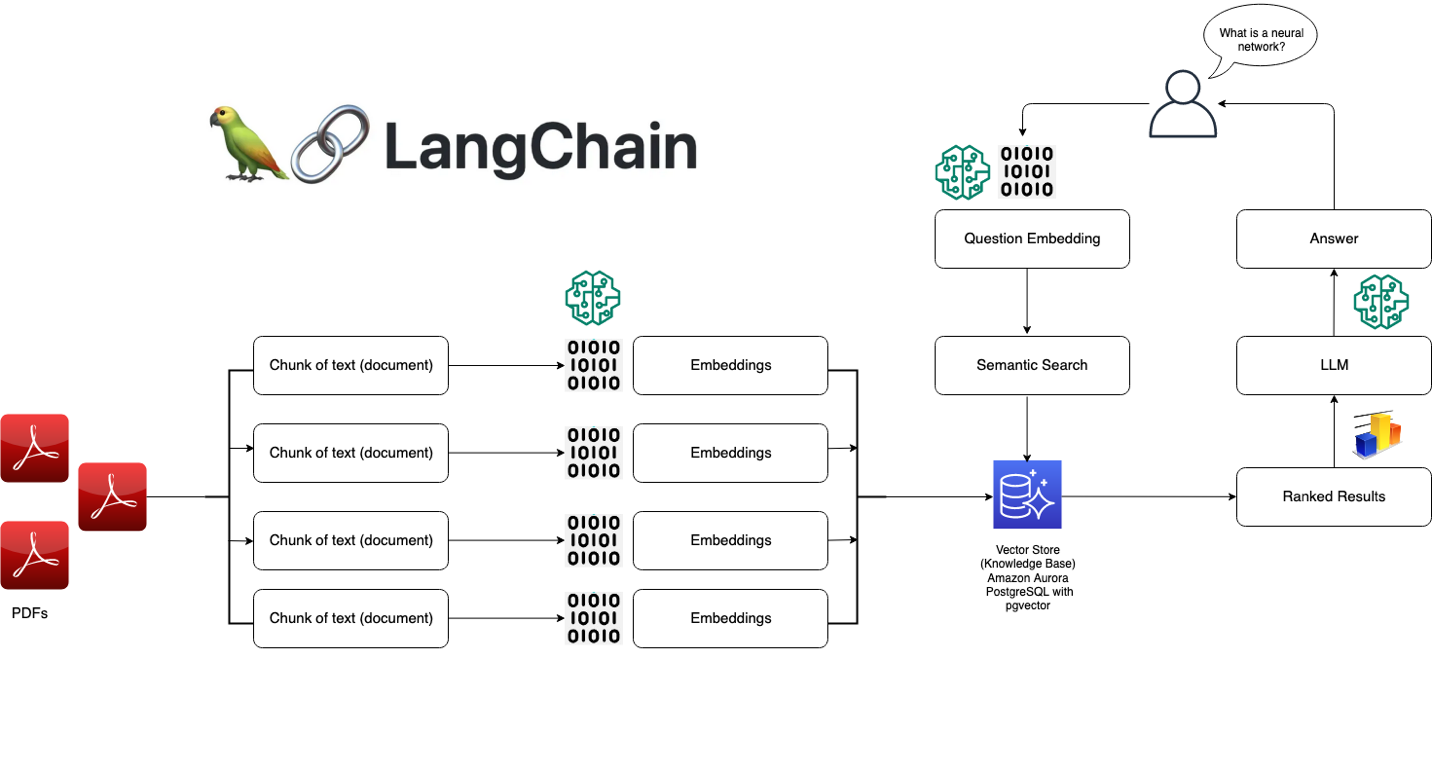If you're building AI apps with large language models right now, there is no way around LangChain. LangChain is currently one of the hottest new Python frameworks, released just at the end of last year. It already crossed 20,000 stars on GitHub and has a thriving community of contributors and creators who build new cool stuff with it every single day. On top of that, the creator of LangChain just announced a 10 million dollar seed round. So what is it that makes LangChain so exciting?
Let's take a look at LangChain, how it works, and what you can do with it. LangChain is a framework for developing end-to-end applications powered by large language models. Imagine you want to build an app on top of powerful language models like those from OpenAI or Hugging Face. Then, you want to combine it with your own data – say, a Notion database, PDFs, or your emails. You also want to construct prompts based on plain user input, store the conversation history, and maybe even combine the models with another model or give it access to Google Search or Wikipedia to make it even more powerful. This sounds like a lot to consider for an end-to-end application, right?
Well, LangChain makes all of this a whole lot easier. It allows building applications with LLMs through composability and currently provides six different key functionalities divided into different modules.
About LangChain
LangChain is an open-source framework designed to simplify the creation of applications using large language models (LLMs). It provides modular components and tools to streamline the process of building context-aware, reasoning applications. Connect LLMs to your custom data sources, enable interaction with their environment, and create sophisticated AI applications with greater ease.
Key Features
LLMs
LangChain provides a generic interface for many LLMs. You can access models from OpenAI, Hugging Face, Cohere, and many more providers, offering flexibility in choosing the right engine for your needs.
Prompts
This includes prompt management, prompt optimization, and prompt serialization. You can, for example, define prompt templates that take the user input and then create the final prompt for the model, making dynamic prompt generation straightforward.
Chains
Chains go beyond just one single LLM call and are sequences of calls. In the simplest example, you can chain together a prompt template and an LLM, but the possible combinations are almost endless here, allowing for complex workflows.
Memory
LangChain provides a standard interface for memory and a collection of memory implementations. For example, you can easily store the message history of a chatbot, enabling stateful conversations.
Indices
This module contains many utility functions so that you can combine the model with your own text data. For example, it provides document loaders to load data from different sources like Notion, PDFs, or emails, and it provides vector store interfaces to efficiently store the text and make it searchable.
Agents and Tools
This is an extremely powerful module. You can set up agents powered by large language models that can use tools like Google Search, Wikipedia, or a calculator. If this is used correctly, this can give your app potentially unlimited powers by allowing the LLM to interact with the external world.
Pros and Cons
- ✅ Flexible and modular architecture (Composability)
- ✅ Supports a wide range of LLMs and data sources
- ✅ Enables complex workflows through Chains
- ✅ Powerful Agent capabilities for external interactions
- ✅ Active development and strong community support
- ✅ Simplifies integration with custom data (Indices)
- ✅ Built-in memory management for conversations
- ❌ Can have a steep learning curve due to its flexibility
- ❌ Rapidly evolving framework, which can lead to breaking changes
- ❌ Documentation might lag behind cutting-edge features
Use Cases
LangChain is versatile and can be used for various applications, including:
- Building sophisticated chatbots and virtual assistants.
- Question-answering systems over specific documents or data sources.
- Text summarization tools.
- Data analysis and extraction powered by LLMs.
- Creating autonomous agents that can perform tasks using tools.
- Content generation applications.
Availability and Pricing
LangChain is an open-source Python framework. You can easily install it using pip:
pip install langchainIt is freely available under an open-source license. You can find its code repository on GitHub and extensive documentation online.
This framework offers powerful capabilities for anyone looking to build sophisticated applications powered by large language models. Its modular design and extensive features make it a go-to choice for developers in the rapidly growing field of AI application development.
